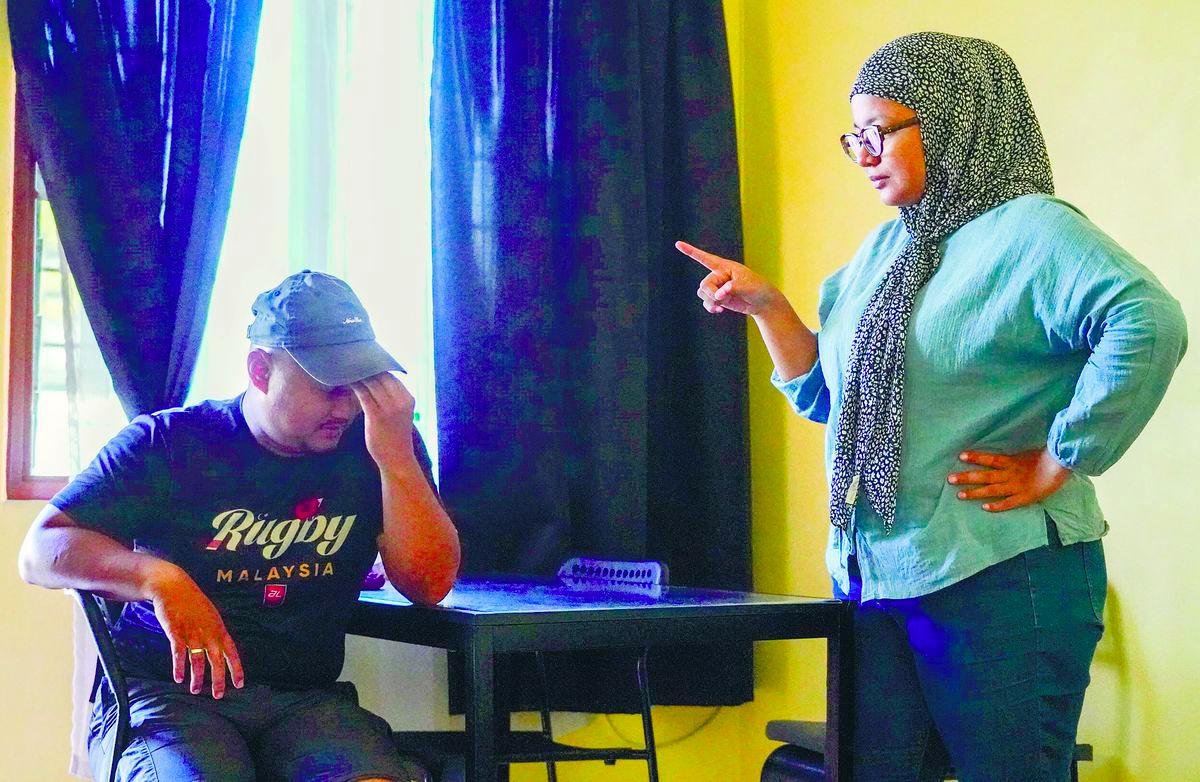PETALING JAYA: Domestic violence against men is a silent crisis in Malaysia, with many victims suffering humiliation and psychological abuse in secret until it erupts as depression, burnout or even violence, said Universiti Teknologi Malaysia
senior psychology officer Dr Zulfikar Ahmad.
“Men are naturally reserved. They keep problems to themselves,” he said.
“Because of finance, ego and how they were raised, they rarely share. Only a few people ever know what is happening at home.”
He said cultural expectations that men must always lead the family and appear strong leave victims ashamed to speak up.
“When they finally do, people dismiss them: ‘You are a man, why can you not handle it?’”
He stressed that while most picture domestic violence as physical, psychological abuse is far more common among male victims.
“Bruises are easy to see. What men hide is constant humiliation, coercion and
emotional manipulation.
“When they try to report it, society’s disbelief becomes a
second wound.”
The abuse often starts small, such as belittling or public humiliation that escalates when left unchecked.
He added that victims may first show subtle warning signs, such as reduced productivity, procrastination or burnout at work.
“When a person lacks authority at home, he may release frustration where he has power, perhaps towards subordinates.
“That is how private pain becomes a workplace problem.”
In rare but tragic cases, the pressure boils over.
“We have seen men who, after years of psychological abuse, finally explode.
“Some have even committed serious crimes. It is the burnout we fear most.”
Zulfikar added that shifting family dynamics, with more Malaysian women in high-powered jobs, could create new fault lines.
“Some wives forget that home life requires partnership, not hierarchy.
“Workplace stress or ego clashes could be taken out on the husband. At first, it may look like harmless venting, but it could become systematic abuse.”
He said even housewives may lash out at their husbands if they feel isolated.
“Violence is not about gender, it is about control.”
Men’s reluctance to share emotions makes it worse.
“Women, when hurt, often seek support. Men just want someone to listen.
“But in busy offices, no one notices. Even the toughest guy could be suffering while appearing fine until he reaches a breaking point.”
This emotional silence means that depression in men often goes undiagnosed.
Zulfikar urged parents, employers and society to act.
“Parents should let boys express feelings, the same way we encourage girls. Teach them early that crying or talking is not weakness.”
He recommended mental health support in workplaces, as well as confidential counselling and training managers to spot changes in behaviour.
“Some companies think staff wellbeing is only about performance. But if you care for employees as people, productivity follows.”
His message is blunt – silence is dangerous.
“Violence has no gender. If you are a man experiencing abuse, speak up. Report it. The law does not discriminate and help is available.
“And to couples everywhere, if you want a loving partner, start by being one yourself. Do not manipulate or humiliate. When behaviour crosses the line, it is violence, no matter who commits it.”
He said breaking the old belief that “boys do not cry” could save countless families from reaching a tragic boiling point.









